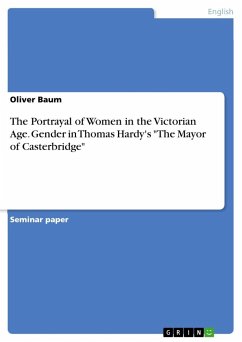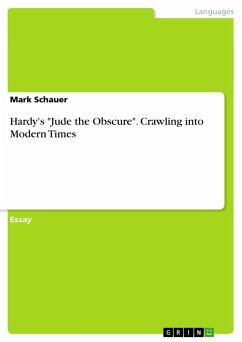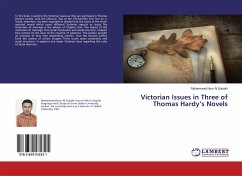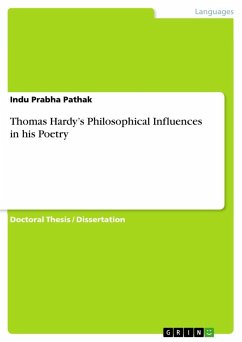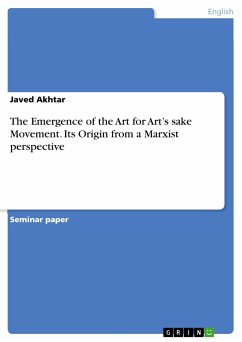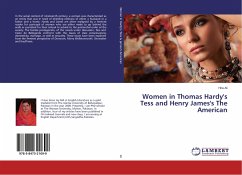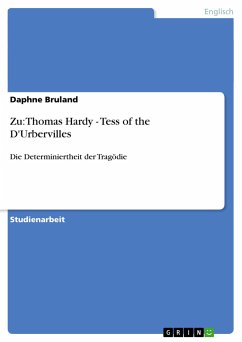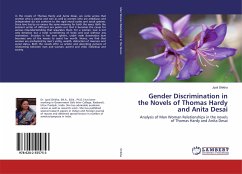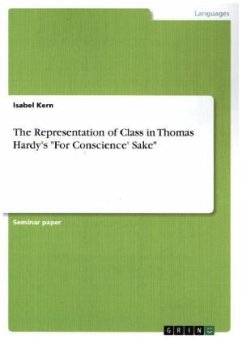
The Representation of Class in Thomas Hardy's "For Conscience' Sake"

PAYBACK Punkte
0 °P sammeln!
Seminar paper from the year 2017 in the subject Didactics - English - Literature, Works, grade: 2,3, University of Hannover (Englisches Seminar), course: Lower - Middle - Upper: Identifying and Discussing Class, language: English, abstract: The high class-consciousness of Victorian England is very prominent in Hardy's short story, so that the aim of this paper is to show that "For Conscience' Sake" breaks with the conventions of the Victorian literary marketplace in order to depict the consequences of a relationship or marriage between people from different classes induced by a very class-cons...
Seminar paper from the year 2017 in the subject Didactics - English - Literature, Works, grade: 2,3, University of Hannover (Englisches Seminar), course: Lower - Middle - Upper: Identifying and Discussing Class, language: English, abstract: The high class-consciousness of Victorian England is very prominent in Hardy's short story, so that the aim of this paper is to show that "For Conscience' Sake" breaks with the conventions of the Victorian literary marketplace in order to depict the consequences of a relationship or marriage between people from different classes induced by a very class-conscious society, and that these consequences not only affect the female part of the couple.In order to prove this thesis statement, I will firstly show the class differences between the different characters, analyse difficulties that emerge with the relationship between the characters induced by their class difference, and finally conclude with the statements that the text offers about class and culture of the late 19th century. For the utilitarians of the 19th century "only will power and a degree of talent were needed to achieve economic and social success", so that people became increasingly class-conscious and attempted to rise in terms of their social class. The rise of the working and middle classes led to growing fear of the upper classes and with the right to vote for educated middle-class members, the upper classes had to rule the country together with them.




